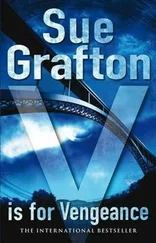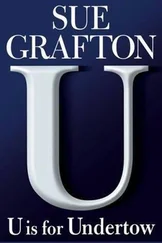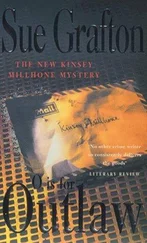I went home for lunch, stopping off at my apartment just long enough to check for messages. My machine was clear. I went next door to Henry's. I was looking forward to meeting William.
I found Henry standing in his kitchen, this time up to his elbows in whole wheat flour, kneading bread. Pellets of dough clung to his fingers like wood putty. Usually, Henry's kneading has a meditative quality, methodical, practiced, soothing to the observer. Today, his manner seemed faintly manic and the look in his eyes was haunted. Beside him, at the counter, stood a man who looked enough like him to be a twin; tall and slim, with the same snowy white hair and blue eyes, the same aristocratic face. I took in the similarities in that first glance. The differences were profound and took longer to assimilate.
Henry wore a Hawaiian shirt, white shorts, and thongs, his long limbs sinewy and tanned as a runner's. William wore a three-piece pinstriped suit, a starched white shirt, and a tie. His bearing was erect, nearly stiff, as if to compensate for the underlying feebleness I'd never known Henry to exhibit. William held a pamphlet in a slightly shaking hand and he pointed with a fork to a drawing of the heart. He paused for introductions and we went through the proper litany of inaugural sentiments. "Now where was I?" he asked.
Henry gave me a bland look. "William's been detailing some of the medical procedures associated with his heart attack."
"Quite right. You'll be interested in this," William said to me. "I'm assuming your knowledge of anatomy is as rudimentary as his."
"I couldn't pass a test," I said.
"Nor could I," William replied, "until this episode. Now Henry, you'll want to pay attention to this."
"I doubt that," Henry said.
"You see, the right side of the heart receives blood from the body and pumps it through the lungs, where carbon dioxide and other waste products are exchanged for oxygen. The left side receives the blood full of oxygen from the lungs and pumps it out into the body through the aorta…" The diagram he was using looked like the road map of a park with lots of one-way roads marked with black-and-white arrows. "Block these arteries and that's where you have a problem." William tapped on the diagram emphatically with the fork. "It's just like a rockslide coming down across a road. All the traffic begins to pile up in a nasty snarl." He turned a page in the pamphlet, which he held open against his chest like a kindergarten teacher reading aloud to a class. The next diagram showed a cross section of a coronary artery that looked like a vacuum cleaner hose filled with fluffies.
Henry interrupted. "Have you had lunch?"
"That's why I came home."
"There's some tuna in the refrigerator. You can make us some sandwiches. Do you eat tuna, William?"
"I've had to give it up. It's a very fatty fish to begin with and when you add mayonnaise…" He shook his head. "Not for me, thanks. I'll open one of the cans of low-sodium soup I brought with me. You two go ahead."
"Turns out William can't eat lasagna," Henry said to me.
"Much to my regret. Fortunately, Henry had some fresh vegetables I was able to steam. I don't want to be a bother and I said as much to him. There's nothing worse than being a burden to your loved ones. A heart condition doesn't have to be a death sentence. Moderation is the key. Light exercise, proper nutrition, sufficient rest… there's no reason to believe I couldn't go on into my nineties."
"Everyone in our family lives into their nineties," Henry said tartly. He was slapping loaves into shape, plunking one after another into a row of greased pans.
I heard a dainty ping.
William removed his pocket watch and flipped the case open. "Time for my pills," he said. "I believe I'll take my medication and then have a brief rest in my room to offset the stress of jet lag. I hope you'll excuse me, Miss Millhone. It's been a pleasure meeting you."
"Nice to meet you, too, William."
We shook hands again. He seemed somewhat invigorated by his lecture on the hazards of fatty foods.
While I put the sandwiches together, Henry put six loaves of bread in the oven. We didn't dare say a word because we could hear William in the bathroom filling his water glass, then returning to his room. We sat down to lunch.
"I think it's safe to say this is going to be a very long two weeks," Henry murmured.
I moved over to the refrigerator and took out two Diet Pepsis, which I brought back to the table. Henry popped both tops and passed one back to me. While we ate, I filled him in on the investigation, in part because he likes hearing about the work I do, and in part because I find it clarifies my thinking when I hear what I have to say.
"What's your feeling about this Barney fellow?" he asked.
I shrugged. "The man's a creep, but then I don't think much of Kenneth Voigt, either. Talk about grim. Fortunately for them, the judicial system doesn't seem to hinge on my personal opinions."
"You think the informant is telling the truth?"
"I'll know a lot more when I find out where he was on May twenty-first," I said.
"Why would he lie? Especially when it's so easy to check? From what you've said, if he was actually in jail, all you have to do is go back and look at his paperwork."
"But why would David Barney lie about it when the same possibility applies? Apparently, nobody's thought to verify the date so far-"
"Unless Morley Shine checked it out before he died." Henry imitated the "significant moment" music on a radio drama: "Duh-duh-duh."
I smiled, mouth too full of sandwich to articulate a reply. "Oh, great. That's all I need," I said when I could. "I do my job right and I die, too." I wiped my mouth on a paper napkin and took a sip of Pepsi.
Henry gestured dismissively. "Barney's probably generating some kind of smoke screen."
"I hope that's what it is. If some of this shit checks out, I don't know what I'm going to do."
Famous last words. Before I left, I put in a call to Lieutenant Becker to see if he'd heard from Inmate Records.
"I just got off the phone with them. The guy was right. Curtis McIntyre was being arraigned that day on a burglary charge. He might have passed Barney in the hall on his way to see the magistrate, but he'd have been shackled to the other prisoners. There's no way they could have talked."
"I better find out what's going on here," I said.
"You better do it quick. McIntyre got out of jail this morning at six."
I headed back to the office and called Sergeant Hixon, a friend of mine out at the jail. She checked Curtis McIntyre's records and gave me the address he'd provided his last parole officer. Curtis seemed to spend a portion of each year taking advantage of the rent-free accommodations provided by the Santa Teresa County Sheriff's Department, which he probably considered the equivalent of a Hawaiian condominium vacation time-share. When he wasn't enjoying the free meals and volleyball at the local correctional facility, he apparently occupied a room at the Thrifty Motel ("Daily, Weekly, Monthly… Kitchens") on upper State Street.
I parked my VW across the road from this establishment, which quick calculation told me was within walking distance of the jail. Curtis didn't even have to spring for a taxi on release. I imagined that his was that one room without a ratty car parked out front. The occupants of the other units boasted Chevies and ten-year-old Cadillacs, vehicles favored by auto insurance defrauders, which is what they might have been. Curtis hadn't been out of jail long enough to engage in any illegal activities. Well, maybe littering, lewd conduct, and public spitting, but nothing major.
The Thrifty Motel looked like the sort of "auto court" where Bonnie and Clyde might have holed up. It was L-shaped, built of cinder block, and painted the strange green that yolks turn when they've been hard-boiled too long. There were twelve rooms altogether, each with a tiny porch a little bigger than a doormat. Someone had planted marigolds in matching coffee cans arranged in twos and threes by the front steps. The office at the entrance was dominated by a Coke machine and the front window was obscured by mock-ups of all the credit cards they took.
Читать дальше











